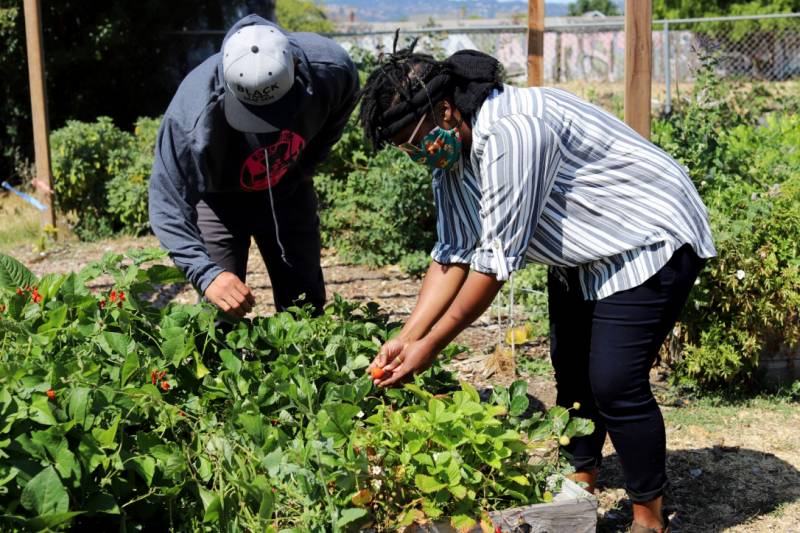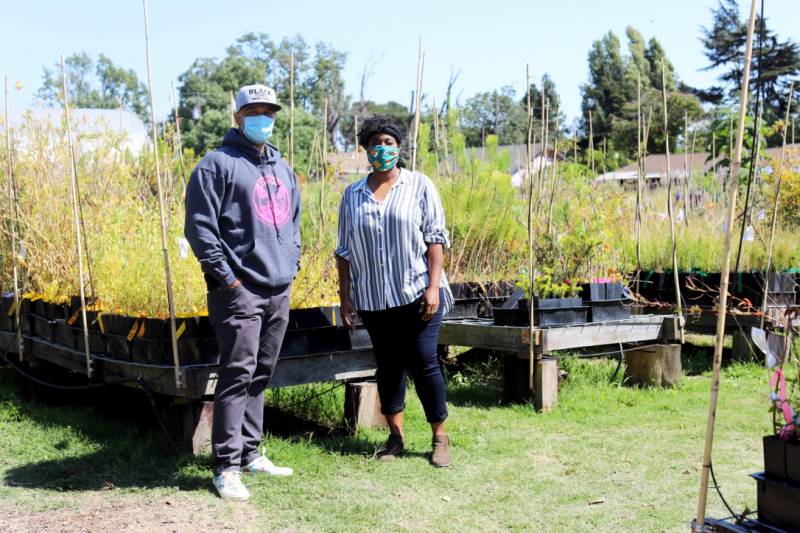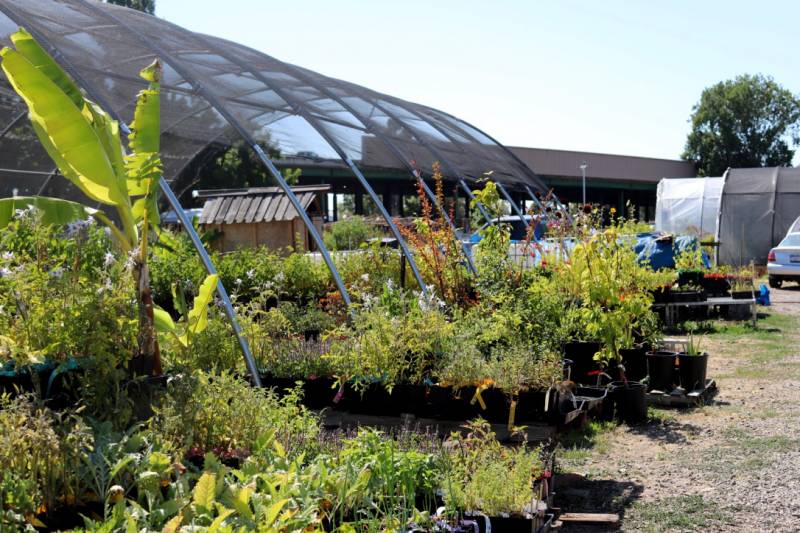R
olling River Nursery is an oasis of tranquility in deep East Oakland, with over 1,100 varieties of fragrant herbs, vibrant flowers, fruit-bearing trees, berry bushes and vegetable beds that stretch on for two acres. As the staff here nurtures the plants, they nurture themselves too—not long ago, many of them were confined to cells in California’s notoriously overcrowded prison system.
Rasheed Lockheart, reentry coordinator at Planting Justice, the nonprofit that runs the nursery, was released only a few months ago after serving 18 years in San Quentin State Prison for an armed robbery. A few short months after he left the facility, a botched prison transfer sparked a disastrous COVID-19 outbreak in San Quentin. Now, over 1,200 inmates have been infected and 12 have died.
Lockheart was fortunate to be home by the time COVID-19 hit San Quentin, but he says he has survivor’s guilt. A couple of the guys he knows are recovering from the illness in cramped, unsanitary conditions, with inadequate medical care. The EMTs he worked with when he was a firefighter there are getting triple the amount of emergency calls a day. And a friend wrote him a letter to say goodbye in case he didn’t survive the outbreak.
“I would have to imagine it’s like death row. You know an execution’s coming, you’re just not sure when. And that’s tragic,” says Lockheart, looking down and taking a long pause to compose himself.
“It breaks my heart to think of some of the good men I left behind because I—it’s like they’re being victimized, you know. We all deserve a second chance. Some of us were on our third or fourth. But no one deserves what’s happening inside of San Quentin.”




